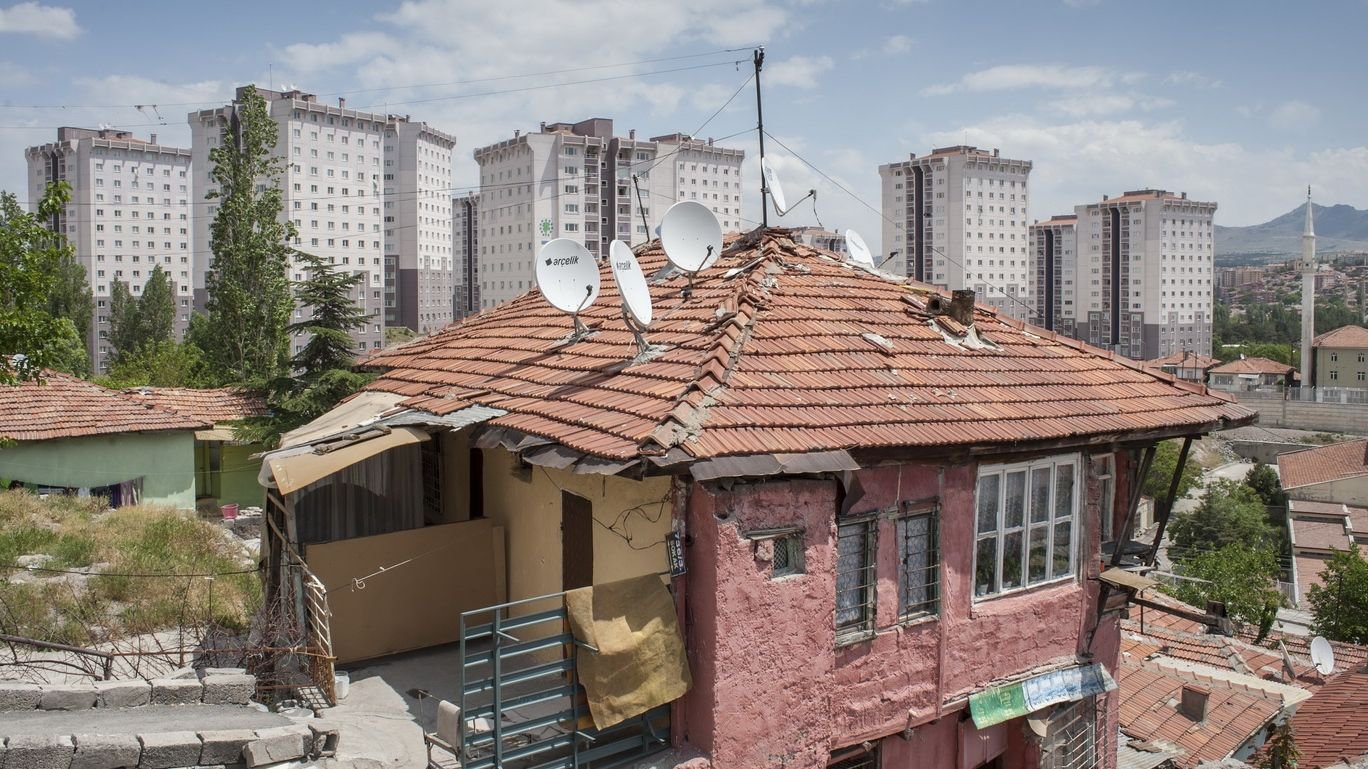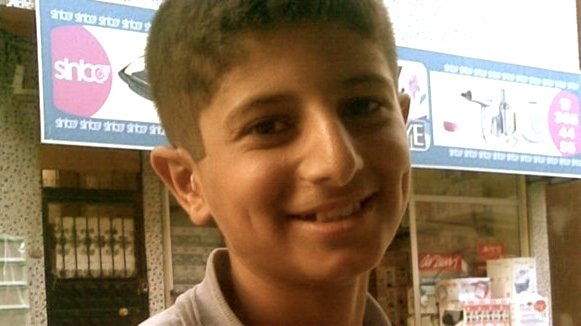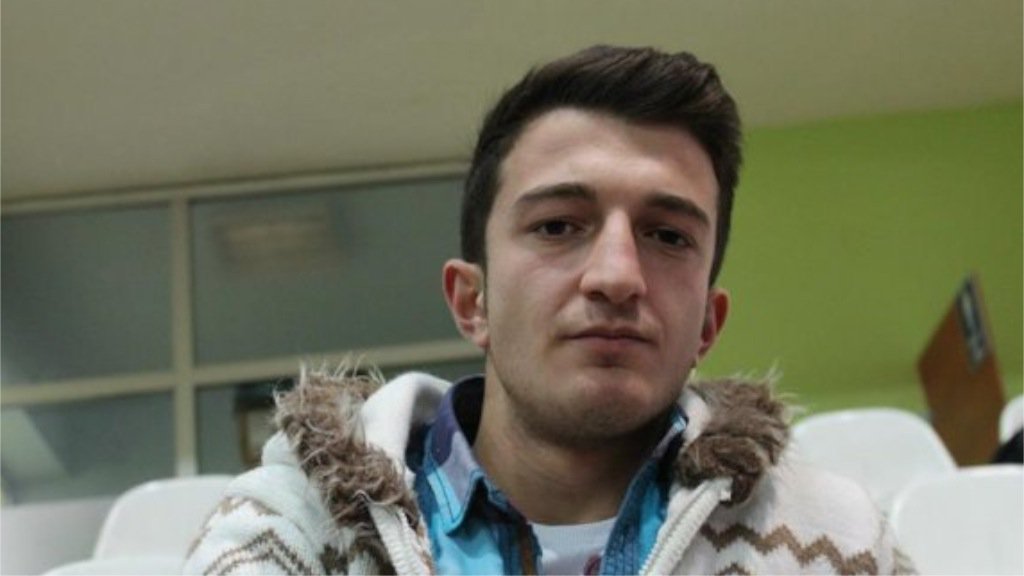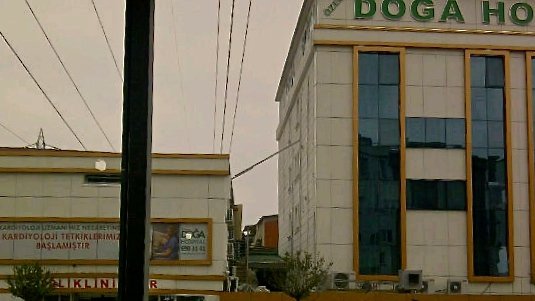When thirteen year-old Turkish-Kurdish boy Ahmet Yildiz was crushed to death under a plastic moulding machine at work, his employer told the hospital his injuries were caused by a traffic accident.
The A&E doctor who examined Ahmet knew the employer, Ali Koç, was lying and called the police. It was not the only lie Koç used to save himself.
Koç, who illegally hired other children at his small company in Adana, south Turkey, making household goods, later claimed in court that Ahmet was 16 years old, used the machine "out of curiosity" and was responsible for his own death.
It was a small victory when the judge found Koç guilty in July 2013, sentencing him to five years in prison. But in October that year, the judge offered Koç a choice: do the time or pay a 10,000 Euro fine, paid off over two years.
Koç took the deal and walked free.
The verdict in the trial over Ahmet's killing caused outrage in Turkey. But calls to reopen the case were rejected by the family, who tell us they settled the matter between the Asiretler - tribes in Turkish - choosing not to pursue stronger charges. This meant an exchange of money. For poor families who need their children to earn cash, it can be more important than justice.
Ahmet is only one of at least 150 children killed in work-related accidents in Turkey in the past three years, and one of the few that resulted in a "successful" prosecution.
Research by the Centre for Investigative Journalism (CIJ) includes mapping the deaths between 2012 and the beginning of 2015 [Click here for our data story], highlighting how the Justice & Development Party's (AKP) recent labor and education policies not only undermine Turkey's early progress in combating child labor, but also directly caused the deaths of at least five school pupils.
When internships kill
Seventeen year old Oguzhan Çalıskan was a pupil at STFA Technical & Vocational High School in Gebze, two hours bus ride from Istanbul, on the Marmara Sea.
This is a conservative town and staunchly pro-government. The school is inside an industrial zone, set among factories - of which there are many.
Dilek Çalıskan, Oguzhan's mother, told us that he wanted to be a P.E. teacher. But the school ignored this ambition when choosing his apprenticeship.
Last summer, Oguzhan began a one month placement at a factory owned by Filli Boya, Turkey’s largest paint company, to learn how to be an electrician.
After weeks of heavy work he complained of being exploited. “A couple of days before the accident, he came home and said he had put up 500 electrical cables,” says Dilek. “His hands were bruised and wounded.”
Oguzhan was electrocuted on 15 July, 2014. He died in hospital 23 days later.
In a guarded interview, Filli Boya's human resources director, Tugba Cortelekoglu, refused to answer most questions about Oguzhan's death. She called the incident a "tragic accident", and claimed Oguzhan "was not working with electricity" at the time of his electrocution.
He is one of at least five pupils killed on apprenticeships under the AKP's 2012 education bill, dubbed 4+4+4. The law, which increases compulsory schooling from eight to 12 years, was welcomed by many. But critics argue that it forces students into technical schools where they undertake dangerous work for which they are unqualified and inexperienced.
In 2013, the first year of 4+4+4, there were two fatalities: Faruk Dumlupınar, 17, from Denizli, west Turkey, was sent by his school to train as an electrician at an elevator repair company. When school restarted, the company continued to employ him, illegally.
On Friday 12 September, when he should have been in school, Faruk was killed after a 30 year old lift he was repairing powered up. He was simultaneously crushed and electrocuted.
Eleven days later, 17 year old Ali Karkas from Manisa was hit by a car and killed while returning to his placement job at a mechanic garage.
In April 2014, 16 year old Ibrahim Can Duran was a student at a vocational school in İnegöl, Bursa, also on the Marmara Sea. He was an apprentice at a metal workshop and was crushed under two tonnes of metal while unloading a truck.
Child labor, cheap labor
Since AKP came to power in 2002 under the command of former-prime minister, now-president, Recep Tayyip Erdogan, Turkey's economy grew to the 17th largest in the world.
Its economic miracle is largely based on manpower for construction, farming and textiles. In recent years, Turkey's economy has slowed and many experts fear an impending financial crisis. It has also struggled to provide the labor force to cope with the demands of its new free market economy.
Former Environment and City Planning Minister Erdogan Bayraktar said at a Ramadan dinner in Trabzon in August 2013 that "Turkey… cannot raise inventors and we cannot invent. We are a country of technical, mid-level workers. So we need to educate our children accordingly.”
The government saw the crisis coming. In 2010, the Ministry of Education began closing down the country’s 1,500 state high schools, redistributing millions of students without the grades or finances to enrol in elite schools to Imam Hatip (religious schools), which train future religious leaders, and technical and vocational schools, where students learn trades.
When, in 2012, the government pushed 4+4+4 through the parliament without any consultation, it caused brawling between MPs and protests by unions. All argue that the law exacerbates child labor.
"I am certain child labor will rise considerably in the coming five to ten years," says Ozgur Ozel, Republic Peoples' Party MP for Manisa, west Turkey, and a member of the Health, Labor and Social Work commission.
Mehmet Onur Yilmaz, Education Policy Officer for Gündem Çocuk, the Turkish child rights NGO who supplied us with child deaths data, says the new policy "not only promotes child labor”, but also perpetuates poverty and restricts upward mobility for underprivileged children.
“From a very early age children are condemned to an education and career path which restricts opportunities,” he says. “They are stuck at the job assigned to them, and for the rest of their lives will earn very little money.“
UNICEF's Turkey Representative Lieke van de Wiel rejects any notion that the corporatizing of schools encourages child labor, despite the five deaths.
"These [deaths] probably would have happened before 4+4+4, so I would not say it was triggered by it," says Van de Wiel.
Turkey “most dangerous” in Europe for workers
Most experts interviewed by us agree that the real number of fatalities is likely much higher than the 150 working children who have so far been confirmed dead. This phenomenon is symptomatic of a wider labor problem in Turkey. During AKP's tenure, over 15,000 workers have died. State opposition to labor rights movements is now more violent, particularly in the wake of protests after the Soma mine explosion, which killed 301 workers on 13 May 2014.
Turkey is now the most dangerous country in Europe to be employed, and finds itself blacklisted by the International Labor Organization (ILO) for its assault on unions and "failure to change its laws to conform” with its commitments.
In 1994, Turkey implemented ILO’s International Programme on the Elimination of Child Labor (IPEC) initiative. Child labor fell from over 2.2 million in 1994 to 886,475 in 2006, according to the Turkish Statistics Institute.
Since then, progress has retarded. IPEC ended most of its programmes in Turkey by 2007. It was, says Nejat Koçabay, programme officer for IPEC in Ankara, "a decision made by ILO headquarters [in Geneva]…. there were countries more in need than Turkey".
In 2012, the number of child workers rose by 13,000.
In public, Turkish officials tout past successes, ignoring contrary evidence on child poverty and labor deaths.
In June 2014 deputy minister for Labor and Social Security, Halil Etyemez, who resigned his position earlier this year to run as an MP for Konya in this June's elections, which he won, announced to delegates at the 103rd Session of the ILO Conference in Geneva that “child labor is no longer on Turkey’s agenda.”
Already that year, 20 children had died. By the end of the year, that number would rise to over 50. In 2013, it was 74.
But there seems to be a failure to acknowledge the facts.
In the Turkish parliament on 9 January 2015, Etyemez's boss, Faruk Çelik, Minister for Labor, responded to questions about child fatalities by claiming only “one child worker under 15” has died since 2001.
"The judge laughed in my face"
International human rights organisations have accused the judiciary in Turkey of becoming a political theatre, used to extend government policies and chill criticism. Police have arrested and imprisoned journalists, military officials and protesters, mostly accused of involvement in anti-government terrorism.
For nearly two years Erdinc Eroglu, whose 16 year old son Eren was killed while illegally employed, has tried to hold to account those he believes are responsible for Eren's death.
Eren dropped out of school at 15. His parents wanted him to study, but school, said Erdinc, a retired business-owner from Istanbul, was "a place Eren never liked."
Over the course of the next year, Eren worked several jobs before moving to TDS Digital Printing & Advertisement Services Ltd (TDS Dijital Baski Merkezi ve Reklam Hizmetleri San. Tic. Ltd) in Yenibosna, a couple of miles north of the capital's Ataturk Airport, in September 2013.
Eight days later, on 31 October, Eren was dead, electrocuted by a low hanging power line while attempting to fix a sign at Doga private hospital. Photographs taken on the day reveal the shocking neglect for safety.
Exactly who is to blame will be debated at a fifth court hearing on 14 September this year. Erdinc believes that fault runs deep, including Doga, TDS, the Istanbul municipality, and the electrical company. Each organisation played a role in Eren's death, and each denies responsibility.
Since the accident, no attempt has been made to fix the danger. Much to the anger of Erdinc.
On the first court hearing, Erdinc prepared like a lawyer to defend his son.
“When it was my turn, I said: ‘The hospital still doesn’t comply with the law. It needs to be shut down to prevent any more deaths’. The judged laughed in my face.”
“I don’t want revenge”
In all the cases analyzed for this report, only the deaths of Ahmet, Oguzhan and Eren reached court. Ali Koç for Ahmet's death remains the only conviction, achieved because the Yildiz family capitulated to pressure from prosecutors and defense lawyers.
"In court, Ali Koç’s lawyer told us we [Gündem Çocuk] had wasted our time because the matter was now settled," says Ezgi Koman, coordinator at Gündem Çocuk, who were trying to support the Yildiz family.
Ezgi adds that Ahmet’s father told the court the family no longer wanted to press forward with the case because they had received “financial and moral compensation.”
Ahmet’s brother, Tahir tells us: “[Ali Koç] was extremely upset so we forgave him. I still see him around, his workplace is still here, we live in the same neighbourhood… I don’t want revenge.”
Tahir would not disclose how the matter was settled between the tribe members, but denies that the family received any “blood money” from Koç.
Ezgi says she understands why Tahir would not admit to accepting money. It would, she adds, be “embarrassing to accept it openly.”
Selcuk Kaygisiz, representative of the Platform for Ending Worker Deaths, an NGO set up to provide support to victims, says that interference is a common problem in securing convictions. "Employers get involved very quickly. Families are so poor and they don't know the law, so they get intimidated by employers.
"It happens to us all the time,” he adds, “we can’t reach the families before the employers do.”
Government "shamelessly" exploits mine disaster
“Turkey has never been pro-labor rights, but never before has it been so pro-business,” says Mehmet Onur Yilmaz from Turkish Child Rights NGO Gündem Çocuk.
At the end of 2014, the Ministry of Labor and Social Security sent the worker safety bill to the General Assembly, which was largely a response to the fatal Soma disaster.
Ozgur Ozel was one of the committee's members. He told us that just before the deadline, AKP members introduced an additional 25 amendments containing everything from tax reform to land rights.
“They used the Soma disaster shamelessly,” says Ozel. “The AKP saw an opportunity to pass other laws they wanted because it was a very easy process with no lengthy discussions.”
He also tells of how they gutted the legislation, toning down punishments for companies who kill employees through negligence.
Public copies of the law show that the government removed a provision barring negligent companies from government contracts for a minimum of two years. They also reduced proposed financial penalties in the cases of worker deaths for the largest companies.
Most worryingly, they lowered the minimum working age for children from 15 to 14.
This age drop is likely designed to help businesses involved in 4+4+4, and will have little effect among the largest employers of children and young people - small businesses and farms.
The Turkish Labor Code already states that children between the ages of 14 and 17 cannot be employed in any hazardous work, and younger children cannot work at all. But exemption in the code nullifies all labor laws for agricultural businesses with fewer than 50 workers. For small businesses it is fewer than four.
UNICEF's Social Policy Officer for Turkey, Iraz Öykü Soyalp, rejects the idea that punishing employers who hire and kill children through neglect would send a message.
“I do not think that increasing the punishment will make much of a difference," she says. "Children are not working because the fines are too low, or because it's not a big deal to pay the fine. Even if you increase the fine… the child's life will not change".
Koçabay from ILO disagrees.
"There should be, in my personal opinion, proper punishment and penalties for whoever is responsible," he says.
"If the family is responsible, the neighbour, the government, or even we [organizations] whose purpose is to intervene, all of us should to take responsibility."
The ILO estimates that 168 million children worldwide are engaged in child labor.
Neither the Turkish Ministry of Labor, Ministry of Education, AKP press office nor members of the Health and Safety sub-commission responded to requests for comment.
Additional reporting by Mina Eroglu
See also Kids killed for cheap Turkish produce in EU supermarkets



